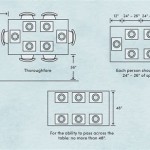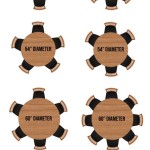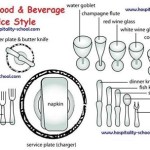```html
Average Weight of a 7 Foot Pool Table
The weight of a 7-foot pool table is a significant factor to consider when purchasing, moving, or setting up a game room. It directly impacts the ease of handling, floor load capacity, and the overall logistics involved. Unlike smaller, more portable game tables, pool tables are substantial pieces of furniture requiring careful planning and execution during installation and relocation. The accurate knowledge of the weight helps in choosing the right manpower, transportation equipment, and ensuring the safety of the floor beneath.
A standard 7-foot pool table, commonly found in homes and recreational establishments, typically weighs between 500 to 750 pounds (227 to 340 kilograms). This range is influenced by various factors, including the materials used in construction, the thickness and composition of the slate, the frame's build, and additional features like ball return systems or ornate designs. The following sections will elaborate on the key components that contribute to the overall weight and provide a more nuanced understanding of this weight range.
Key Factors Influencing Pool Table Weight
Several elements influence the weight of a 7-foot pool table. Understanding these components is crucial for appreciating the weight variations and making informed decisions when buying or moving one.
Slate Bed: The slate bed is by far the heaviest component of a pool table. Slate is used because of its inherent flatness and stability, which are essential for a consistent and predictable ball roll. A 7-foot pool table generally uses slate that is ¾ inch to 1 inch thick. Thicker slate contributes significantly to the overall weight. A single piece slate design, while offering superior playability, is heavier than a multi-piece slate design, where the slate is divided into two or three sections. The standard slate used for a 7-foot table can weigh anywhere from 300 to 500 pounds, or even more depending on the thickness and quality of the slate chosen.
Frame and Cabinet: The frame and cabinet provide the structural support for the slate bed and the exterior aesthetics of the pool table. The materials used in their construction significantly impact the overall weight. Solid hardwood frames, such as oak, maple, or mahogany, are durable and provide excellent stability but are also heavier than frames made from composite woods or softwood. Lower-end tables may utilize particleboard or MDF (Medium-Density Fiberboard) for the frame and cabinet, which reduces the weight but also compromises the structural integrity and longevity of the table. A well-built frame designed for a 7-foot pool table can add between 100 to 200 pounds to the overall weight.
Rails and Cushions: The rails and cushions are essential for the gameplay as they define the rebounding characteristics of the balls. The rails are typically made of hardwood and are attached to the cabinet. The cushions, which are made of rubber, are attached to the rails. The weight of the rails and cushions is less than the slate bed or the frame, but they do contribute to the total weight. Higher quality rubber cushion compounds can be denser and add to the overall poundage. Expect the rails and cushions to add roughly 50 to 100 pounds.
Legs: Pool table legs not only provide support but also contribute to the overall style and appearance of the table. Legs constructed from solid wood, particularly hardwood like oak or maple, will inherently be heavier than those made from metal or composite materials. The design of the legs also influences their weight. Intricate, carved legs will naturally weigh more than simpler, more streamlined designs. The legs may add another 25 to 50 pounds to the overall weight of the table, depending on the material and design.
Additional Features: Some pool tables come with extra features such as a ball return system, which collects the balls after they are pocketed and returns them to one end of the table. A ball return system can add significantly to the weight. Furthermore, decorative elements like metal accents, ornate carvings, or integrated scoring systems will also increase the total weight, even if only incrementally.
Understanding Weight Variations Among Brands and Models
The range of 500 to 750 pounds for a 7-foot pool table is an average, and substantial weight variations can occur between different brands and models. These variations are primarily attributable to differences in material quality, construction methods, and included features.
Material Quality: High-end pool tables often utilize premium materials, such as thicker slate, solid hardwood frames, and high-density rubber cushions. These materials tend to be heavier than their lower-quality counterparts. For instance, a pool table featuring a 1-inch thick slate bed will be considerably heavier than one with a ¾-inch slate bed. Similarly, a solid oak frame will weigh more than a frame made of MDF. Brands specializing in professional-grade or tournament-quality tables prioritize durability and playability, often resulting in heavier tables.
Construction Methods: The way in which a pool table is constructed also affects its weight. A table with a meticulously crafted frame, using intricate joinery and robust support structures, will generally be heavier than a table with a simpler, less reinforced frame. Brands known for their craftsmanship and attention to detail often employ construction methods that add to the overall weight but also enhance the structural integrity and longevity of the table. The type of fasteners and adhesives used can also play a minor role in weight differences.
Included Features: As mentioned earlier, additional features such as ball return systems and decorative elements can contribute to weight variations. Brands that offer customizable options or specialized features may have tables that fall outside the standard weight range. For example, a pool table with an integrated dining top or a convertible design will inevitably weigh more than a standard pool table without these features.
Brand Reputation: Established brands with a long history of producing high-quality pool tables often adhere to stringent manufacturing standards, which may involve using heavier, more durable materials and construction techniques. Conversely, lesser-known brands or budget-oriented manufacturers may prioritize cost savings by using lighter materials and simpler construction methods, resulting in lighter tables. It's important to research the brand and read product reviews to understand the potential trade-offs between weight, quality, and price.
Practical Implications of Pool Table Weight
The weight of a 7-foot pool table has numerous practical implications that should be considered before purchasing, moving, or installing one.
Floor Load Capacity: Before installing a pool table, it's crucial to assess the floor's load-bearing capacity. A pool table weighing 500 to 750 pounds concentrates a significant amount of weight in a relatively small area. If the floor is not strong enough to support this weight, it could lead to structural damage, such as sagging or cracking. Consult with a structural engineer or contractor to determine the floor's load capacity and ensure it meets the requirements for the pool table. Older homes, particularly those with wooden subfloors, may require reinforcement before a pool table can be safely installed. Concrete floors generally pose less of a concern but should still be inspected for any existing cracks or weaknesses.
Moving and Installation: Moving a pool table requires specialized equipment and expertise. Due to its weight and size, a pool table cannot be moved by a single person. It typically requires a team of experienced movers who are familiar with disassembling, transporting, and reassembling pool tables. Attempting to move a pool table without proper equipment or knowledge can result in serious injury or damage to the table. Professional movers use specialized dollies, ramps, and padding to protect the table and the surrounding environment during transport. The cost of moving a pool table varies depending on the distance, the complexity of the move, and the number of movers required.
Assembly: Although some retailers offer delivery and setup services, assembling a pool table is not a straightforward task. The slate bed, in particular, requires precise leveling to ensure a consistent playing surface. Even slight variations in level can significantly affect the ball roll. Professional installers use specialized tools and techniques to level the slate bed and ensure that the table is properly aligned. Improper assembly can lead to uneven play, premature wear and tear, and potential structural issues. Therefore, it's generally recommended to hire professional installers to assemble the pool table.
Maintenance: The weight of the pool table also affects its maintenance. Regular maintenance tasks, such as replacing the felt or adjusting the cushions, may require lifting or moving sections of the table. Knowing the weight of the components helps in planning these tasks and ensuring the safety of those performing the maintenance. Proper weight distribution is also crucial for prolonging the life of the table. Avoid placing excessive weight on any one area of the table, as this can lead to warping or damage.
In conclusion, the average weight of a 7-foot pool table, ranging from 500 to 750 pounds, is a critical parameter to consider when dealing with these substantial pieces of recreational equipment. Understanding the factors that contribute to this weight and the practical implications associated with it can facilitate better decision-making when it comes to purchasing, moving, installing, and maintaining a pool table.
```
How Much Does A Pool Table Weigh Weight Of Slate

Best Advice How Heavy A Slate Pool Table Is Before You Buy

How Heavy Is A Pool Table Home Leisure Direct Advice

How Much Does A Pool Table Weigh Weight Of Slate

Pool Table Weight Everything You Wanted To Know Home Billiards S

Pool Table Weight Everything You Wanted To Know Home Billiards S

How Much Does A Pool Table Weigh Weight Of Slate

How Heavy Is A Pool Table Home Leisure Direct Advice

How Heavy Is A Pool Table Home Leisure Direct Advice

How Much Does A Pool Table Weigh Weight Of Slate








